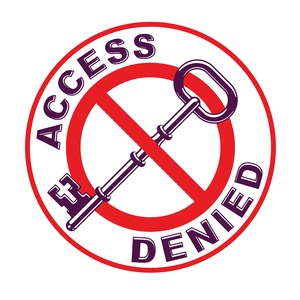 For the uninitiated, matched betting can sound like a scary, possibly even slightly murky or dangerous proposal. Yet there are thousands of punters out there making plenty of money from this technique every day.
For the uninitiated, matched betting can sound like a scary, possibly even slightly murky or dangerous proposal. Yet there are thousands of punters out there making plenty of money from this technique every day.
There is a learning curve and a little faith needed to begin with, but once you get the hang of it you can be in action and making money in no time at all, with the typical matched bet taking just 20 minutes to set up.
This trick can be relied upon because it relies on a mathematical equation rather than chance, and there is nothing more reliable than maths – not even Lionel Messi’s right foot.
This guide will hopefully enlighten you as to what matched betting is, how it works, and how to profit from it.
Myth Busting
Before we dig any deeper, let’s just put a few myths to bed:
- Is it illegal? It’s 100% legal. We wouldn’t be telling you about it wasn’t. Furthermore, the bookies know that it happens, expect it to happen, and continue to run free bet offers regardless.
- Is it safe? You cannot get into any trouble with any authority for matched betting. You can’t even get into trouble with the bookies. They might eventually limit or close your account (more on that later), but you won’t be in trouble.
- What’s the catch? There isn’t one. Really. The only way you can lose money with matched betting is if you personally make a mistake and get it wrong. So if anything, human error is the only catch.
We hope that puts you in a positive frame of mind for the rest of the article. If you still have doubts, read on regardless and with any luck you will feel more confident once you fully understand the process.
From this point onwards, we will start getting a little more technical.
What is Matched Betting?
Put as simply as we can manage, matched betting is when you bet on both outcomes of an event, guaranteeing a return by using a free bet offer. We know, we know; it sounds too good to be true so it probably is, right? But this is one of those rare occasions when that phrase does not hold water.
This is thanks in part to the invention of the betting exchange, and in part to the onset of free bet offers.
What is a Betting Exchange?

A betting exchange is very similar to a regular bookie in many ways, but there are a few key differences.
With a fixed odds bookie, the bookmaker has chosen the odds they are willing to offer on a certain outcome or event. These odds will never reflect the true probability of the outcome or event happening because the bookmaker has worked in their margin to ensure they profit.
Most importantly, you can only ‘back’ something with a fixed odds bookie, the bookmaker will always be ‘laying’ the bet.
Every bet has two sides; one side bets for and the other side bets against.
- Back = Betting that something will happen.
- Lay = Betting that something won’t happen.
At a betting exchange, the bookie (the middleman) is removed, and punters are instead betting against each other. This means that you can also lay an event at an exchange, and this is the crucial component in matched betting. You need to be able to bet both for and against the same outcome or event.
It also means that the odds tend to be better because an exchange makes money by taking a cut of the winnings (no more than 5%) and doesn’t have to worry about margins, so there is more value to be found at an exchange even if you aren’t matched betting.
One final confusing thing to note here is that when laying a bet on an exchange your lay stake is actually the amount you stand to win, whereas at a bookie your stake is what you are putting at risk. Your liability is what you stand to lose at an exchange, and this is the amount you will need in your exchange account in order to lay a bet.
There is a whole article on exchange betting here.
What is a Free Bet Offer?

Free bet offers are one way in which bookmakers try to attract and retain customers. Almost all bookmakers offer a free bet of some sort as a welcome offer to new punters, and most intermittently offer free bets to existing customers as well to keep them loyal.
With around 100 online bookmakers operating in the UK, that is a lot of free bet offers.
Here is how they work:
The offer might be “Bet £5 get a £20 free bet”. This means you have to deposit and bet £5 of your own money in order to unlock the free bet – this is called the qualifying bet.
Sometimes this free bet is credited as soon as you place your qualifying bet, and sometimes you need to wait for the qualifying bet to be settled, but either way you eventually get your free bet.
The free bet in this example might come broken down into 4 x £5 free bets, but you can usually bet them all on the same thing which is important for matched betting.
You will often have to wager your qualifying bet on select markets with odds of at least 1.5 or around there, but these restrictions aren’t too much of a hindrance.
If you use your free bet and win, you pocket the returns but not usually the stake (the free bet amount). This is called a take not returned free bet offer. However, if you do find a free bet offer where the stake is returned then bite their hand off for it!
Brief Example
Now you understand the two key components of a matched bet, let’s try one on for size, assuming you have already placed your qualifying bet and have your free bet waiting to be used.
If we imagine that we are betting on Birmingham City vs Cardiff, we might bet that Birmingham City will win with our bookie’s free bet, and bet that they won’t at the exchange using our own money.
In this way, we are set to win at least one of our bets. If we had bet with our own money on both of these outcomes we would not end up with a profit because one of the bets would lose taking our stake with it.
But with matched betting you are using one of the many free bet offers that the multitude of online bookmakers supply, so one side of your bet is placed with their money, not yours.
This is where it becomes possible to make a profit.
Putting it all Together – Walkthrough

Hopefully you now understand free bets, betting exchange’s, and on a basic level what matched betting is as well.
Next, we will explain how to put all of these components together to make money in a detailed walkthrough.
Note: This will seem long winded when written down, but in practice each free bet will take around 15 minutes to place once you know what you are doing, and the returns you can make placing 3 bets in sixty minutes is far better than most people’s hourly wage.
Before You Start
You will need:
- An account at a betting exchange. Betfair isn’t the only one but it is by far and away the best.
- An account with a bookie that is offering a free bet when you sign up. Make sure you opt in to offers to qualify for your free bet, and when you deposit use a debit card as some other payment providers like Paypal can be exempt.
- ID to verify your betting accounts. Drivers license or bank card is fine.
- A small amount of money to use for qualifying bets and as liability in your chosen betting exchange. This money is safe, you will get it back. Think of it as a float.
That’s it.
The only other thing to say is that it is much much easier to do this using decimal odds, so switch to decimal at whatever bookie you are using.
Qualifying Bet
 The qualifying bet is all about triggering the free bet without costing yourself too much money.
The qualifying bet is all about triggering the free bet without costing yourself too much money.
You have found a free bet offer that you want to exploit. It is “bet £5 get £20 in free bets”.
The first thing you need to do is place your qualifying bet to unlock the free bets.
You find a fixture between Notts Forest and Charlton that looks like a goer; odds to back Forest for the win are 1.60 at your bookie, while odds to lay Forest are 1.66 at your exchange. These odds are close which is what we need.
You need to bet £5 to unlock the free bet at the bookie, so your stake there should be £5. However, we are going to lay the qualifying bet too in order to keep our balance as close to even as possible – we don’t want to lose the £5 qualifying bet, right? So we also lay a bet on Forest at the exchange as close to the bookie’s odds as possible; in our example the odds are 1.66.
That means we will need £3.28 in our exchange account as liability in case that bet loses. This is the amount the person who backed Forest on the exchange stands to win, so we need to have it ready for them. Our lay stake is £4.97, which is what we stand to win if our exchange bet wins; remember, this is not a back bet, so a lay stake is the other way around.
So far we have spent £5 at the bookmaker and have £3.28 in our exchange account as liability. That’s an outlay of £8.28.
Outcomes:
| Bookmaker Account | Exchange Account | Profit/Loss | |
|---|---|---|---|
| Bookie Bet Wins | +£3.00 | -£3.28 | -£0.28 |
| Exchange Bet Wins | -£5.00 | +£4.72 | -£0.28 |
Whatever the outcome of the match one of our bets will win and the other will lose. This will result in a loss of 28 pence for us when all is said and done, including 5% commission if your exchange bet won. This is fine. You will always lose pennies on your qualifying bet.
Remember, we are only doing this to get our free bet.
The Real Matched Bet
 Now you have your free £20 bet in your account and are down 28 pence.
Now you have your free £20 bet in your account and are down 28 pence.
Next, it’s time to use your free bet and make some money.
You find another game; this time it is Barnsley v Birmingham and you are betting on the draw. To back the draw at the bookie you are getting odds of 3.40. To lay the draw at the exchange the odds are 3.60. That’s pretty close, so you go for it.
You use your £20 of free bets to back the draw at the bookie. If the free bet is split up into two £10 bets or 4 £5 bets, just repeat the bet until you have used them all. If your bookie bets win at odds of 3.40 you stand to pocket £48 and it has cost you nothing.
Your lay stake – the amount you stand to win as this is the lay bet not the back bet – is £13.52, so you will need liability of £35.15 in your exchange account. Don’t be scared by this amount of money, it is 100% safe and will come back to you.
So far, you have spent £0 at the bookie as you are using your free bets, and you have £35.15 in your betting exchange account, so your outlay for this bet is £35.15.
Outcomes:
| Bookmaker Account | Exchange Account | Total Profit/Loss | |
|---|---|---|---|
| Bookie Bet Wins | +£48 | -£35.15 | +£12.85 |
| Exchange Bet Wins | -£0 | +£12.84 | +£12.84 |
Whatever happens, one of these bets will win and the other will lose, leaving you with about £12.85 either way, including the 5% commission if your exchange bet won.
Minus the 28p from the qualifying bet and you are £12.57 in profit.
Is it Worth It?
Ok, twelve quid isn’t going to change your life, but it only took you 20 minutes to make. If you match a couple of bets a week at £12 each that is £24 for 40 minutes a week. There are 52 weeks in a year and that adds up to £1,248, tax free.
And that is using relatively low odds.
If you have more capital to use as liability in your exchange account then you can win a lot more than this with each free bet, it just depends how experienced/confident you are in the process.
Is it worth it? Absolutely.
Getting Banned or Gubbed
 Of course, a bookie is not going to be happy with you constantly taking their money, and it is not unheard of for matched bettors to have their accounts closed when the bookie suspects you.
Of course, a bookie is not going to be happy with you constantly taking their money, and it is not unheard of for matched bettors to have their accounts closed when the bookie suspects you.
You are well within your rights to do this, but they are equally well within their rights to shut your account, so the trick is to stay below the radar.
If you jump on every single offer they have and bet the maximum amount possible you will soon flag up on their system as being a costly customer, so you need to play the long game.
Don’t get too greedy.
Some matched bettors have tricks they use to avoid detection. It is impossible to say whether or not these work though, as there is no consistency in the results of those who use them.
Mug Betting
 This is the practice of betting small amounts at the bookie in between using their free bet offers in order to appear like a regular bettor.
This is the practice of betting small amounts at the bookie in between using their free bet offers in order to appear like a regular bettor.
The thinking goes that if you are acting like a normal punter and losing a few bets then you won’t flag up on their system as a potential matched bettor. Of course, you can still lay the bet on the exchange so that your losses are minimal. Think of it as a qualifying bet with no offer at the end; so you might lose a few pence but you won’t be restricted from matched betting.
Some people swear by this tactic, others say it doesn’t work.
We have no idea how sophisticated their systems are or how hard bookies are looking for matched bettors, but we suspect that mug betting does little to disguise your behaviour to anyone who is really checking you out.
Timing
Most regular bettors will wager fairly close to kick off.
Therefore, if you are only betting using offers and placing those bets days in advance you will not look like a normal punter. For that reason it is best to place your matched bet fairly close to the start of the event as you will appear more like a regular punter.
Win at the Exchange
 This isn’t something that is fully in your control, but if your matched bets win at the exchange end rather than the bookie end you are much less likely to be gubbed/restricted.
This isn’t something that is fully in your control, but if your matched bets win at the exchange end rather than the bookie end you are much less likely to be gubbed/restricted.
The exchange makes money from commission, so if you win all the time it doesn’t hurt their bottom line like it would a regular bookmaker.
If you know anything about the sport you are betting on then try and manoeuvre your activity so that the successful bet occurs at the exchange whenever possible. This way you will win there more often and arouse less suspicion at the bookie.
Pros and Cons
As with everything there are pros and cons to matched betting, but if you ask us there are a lot more pros than cons.
| Pros | Cons |
|---|---|
| 100% Safe | Gubbing |
| Tax Free | Takes Time |
| Reliable Extra Income | Learning Curve |
| Open to Anyone | Requires Capital/Liability |
| Good Way to Save | Human Error |
| Lots of Online Help | No Buzz |
| No Commitments | |
| 100% Legal |
So there you go, everything you could ever want to know about matched betting and hopefully more.
